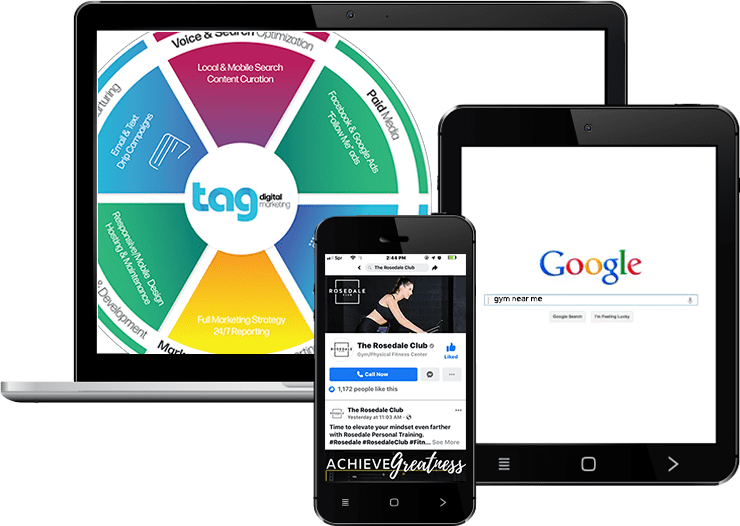
It’s the Key to Boosting Search Visibility!
Imagine this—you’ve just googled your business and are shocked to find a negative review sitting at the top of the search results. Ouch! Not only does that sting, but it might also send potential customers running to your competitors.
While no one wants to experience a scenario like this, it highlights the vital role reputation management plays in today’s crowded online marketplace.
In this article, we’re diving into how reputation management can be a catalyst for business owners. Effective reputation management not only strengthens customer relationships and gives you a competitive edge, but it also boosts your SEO, improving your search engine rankings.
Keep reading to discover how reputation management can be the game-changing step your business needs to thrive in today’s competitive market!
Your Secret Weapon for Success
Today, reputation management isn’t merely a public relations exercise. It’s a critical component of SEO strategy. Why? Because search engines love trusted, well-reviewed businesses.
Positive reviews and mentions can propel you to the top of search results, while negative ones can leave you struggling to be seen.
Check out these benefits of a robust reputation management strategy:
- It helps build customer trust. People tend to rely on reviews and recommendations when choosing a product or service.
- Reputation management encourages more user-generated content, such as positive reviews and social media mentions, which can improve your search engine rankings.
- Lastly, it aids in crisis management. Having a solid reputation makes it easier to bounce back from negative publicity, minimizing long-term damage.
The SEO Boost
Improving your search engine rankings is easier with effective reputation management. It’s all about those click-through rates.
When people searching for a product or service spot glowing reviews and top-notch ratings, they’re way more likely to click on your link. That tells search engines your content is the real deal, upping your rank. Plus, it’s all about the backlinks. When respected sites give your business a shout-out, they’re often linking back to your website, giving your SEO a supercharge.
For example, a local gym actively engages with its members by encouraging positive reviews and promptly addressing feedback. As a result of this effective reputation management, a well-regarded fitness blog features the gym in an article about top workout spots. The blog includes a backlink to the gym’s website, which not only draws in potential new clients but also enhances the gym’s SEO and improves online visibility.
Monitoring Your Online Reputation
Businesses today receive a variety of reviews ranging from detailed customer feedback to quick ratings, each playing a crucial role in shaping public perception. Reviews are found on platforms like Google, Meta (Facebook), and Yelp, where they serve as a testament to a brand’s service and quality.
Regularly monitoring and responding to these reviews is a time-intensive task, yet it’s essential for maintaining a positive reputation. This section dives into practical tips like enhance your credibility and search rankings.
- Encourage Positive Reviews
Encourage satisfied customers to leave positive reviews on platforms like Google, Yelp, and industry-specific sites. A simple follow-up email with a direct link to a review page can make a significant difference. Remember, the more positive reviews you have, the better your SEO ranking. - Address Negative Feedback
Negative feedback should not be ignored. Instead, address it promptly and professionally. Apologize if necessary, offer solutions, and take the conversation offline if possible. Handling criticism well can turn a negative experience into a positive one and show potential customers that you care about their experience. - Leverage Social Media
Social media is a powerful tool for reputation management. It allows you to engage directly with your audience, showcase your brand’s personality, and promote positive customer experiences. Responding to comments and sharing user-generated content can strengthen your online reputation and improve SEO in the process. - Utilize Customer Testimonials
Showcase customer testimonials on your website and social media pages. Authentic testimonials not only build trust but also contribute to SEO by increasing on-page engagement and keeping visitors on your site longer. - Regularly Updating Your Content
Keeping your website content fresh and relevant is crucial for reputation management. Regular updates signal to search engines that your site is active and provides the latest information, helping improve your rankings.
The Power of Local SEO
For businesses targeting local audiences, local SEO is essential. Ensure your business is listed accurately on Google My Business and other local directories. Encourage local customers to leave reviews and utilize local keywords in your content to improve your visibility in local searches.
Closing Thoughts
In summary, reputation management plays a pivotal role in enhancing your SEO efforts. By understanding its importance, monitoring feedback, and encouraging positive interactions, business owners and marketing managers can improve their search engine rankings and build lasting trust with their audience.
Ultimately, your online reputation is a reflection of your brand’s values and commitment to customer satisfaction. By prioritizing reputation management, you’re not only optimizing your SEO but also investing in your business’s long-term success.
Need Help with Your Reputation and SEO?
Entrusting TAG Digital Marketing (TAG) with your reputation management allows you to concentrate on growing your business while ensuring your brand maintains a positive online presence.
 Founded in 1999, TAG Digital Marketing (TAG) successfully manages every aspect of digital presence, including a thorough understanding of each client and their business goals and marketing needs.
Founded in 1999, TAG Digital Marketing (TAG) successfully manages every aspect of digital presence, including a thorough understanding of each client and their business goals and marketing needs.
To grow website traffic, leads, revenue streams, and sales for local, national and franchise businesses, TAG’s comprehensive services include website design and development, search engine optimization (SEO), advertising, online enrollment, custom development projects, and chatbot options.

